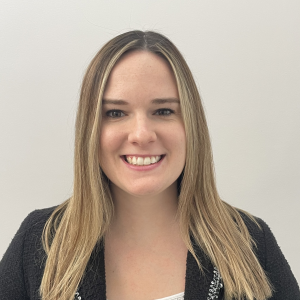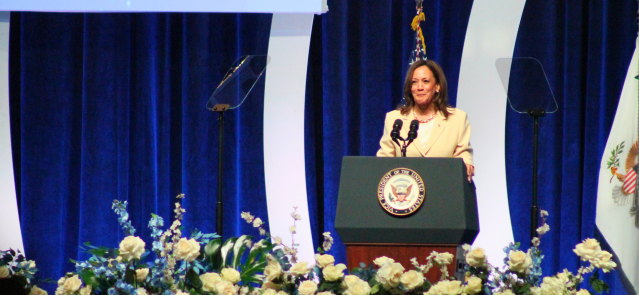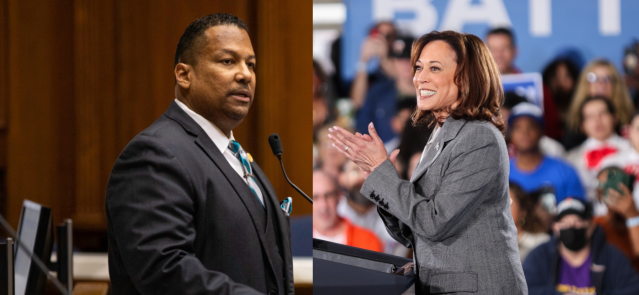Stay ahead of the curve as a political insider with deep policy analysis, daily briefings and policy-shaping tools.
Request a DemoRep. Tim Brown on the upcoming budget and his time in the Statehouse
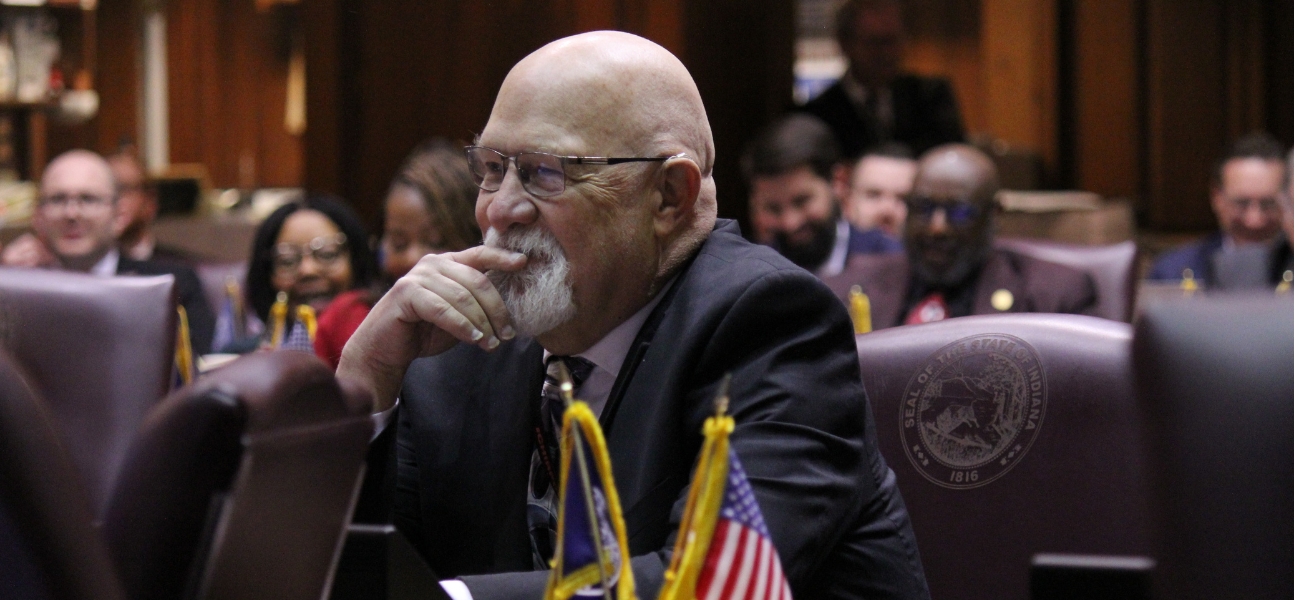
Rep. Tim Brown, R-Crawfordsville, is honored by his fellow House lawmakers on Feb. 10, 2022. (Credit: Indiana House Republicans)
This interview is part of a series of Q&As from outgoing lawmakers as they reflect on their time in the Statehouse.
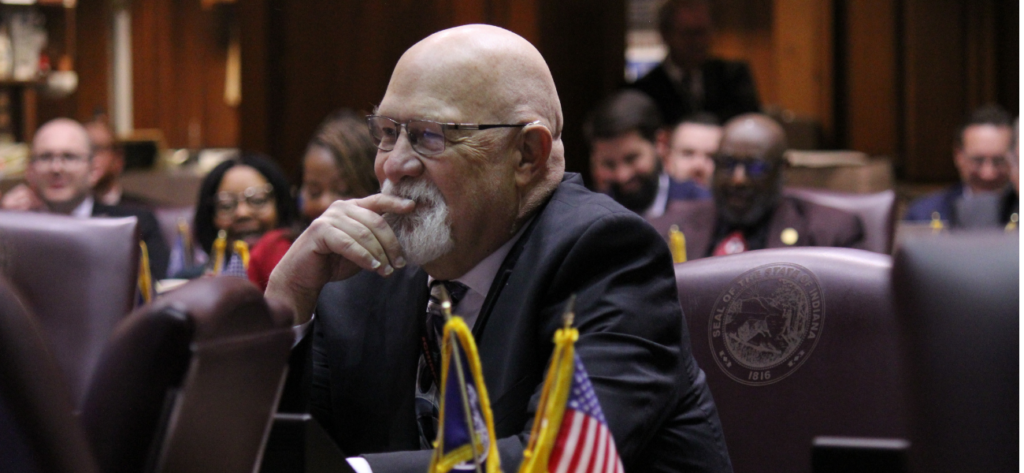
For the last decade, arguably few people in the Indiana Statehouse have been more powerful than outgoing Rep. Tim Brown, a Crawfordsville Republican who led the budget-writing process on the House side from 2013 until his final budget was released in 2021.
Brown, along with Senate fiscal leaders, was largely in charge of determining how billions of taxpayers dollars were allocated, how much funding to give to K-12 education and how to filter his colleagues’ requests for money for projects. As head of the powerful House Ways and Means Committee, Brown also oversaw legislation that cut, and in some cases, raised taxes over the years.
After 28 years in office, Brown won’t be returning in January. State Affairs Indiana talked to him about his experience at the Statehouse, and picked his brain about the upcoming two-year budget plan.
The conversation is edited for clarity, brevity and length.
Q. Why did you decide to step down from the state legislature?
A. I’d been in for 28 years and have seen Indiana change quite dramatically over those 28 years, and felt it was time for somebody else to shoulder the responsibility.
Q. What were you most proud to accomplish or witness during your time in the legislature?
A. I think I ran back in 1994 on property taxes, and they were kind of uncontrollable and unpredictable. So I’m glad to see we have some sense in to [how] property taxes [are handled]. Yes, property taxes go up, but they’re predictable and they’re controllable going forward.
I’m also pleased about the basic structure of school funding. It is now much more understandable and doesn’t take a Ph.D. to look at how the money flows to different schools in different areas.
Q. What else do you wish you could have accomplished?
A. One of the things that we see is there’s a disparity in rural and urban Indiana. Population is growing in the suburban areas and urban areas, and population is decreasing in the other areas. So we need to work more efficiently, and whether that’s combining some government services and combining how we look at problems, I think is the next step forward.
Q. You obviously aren’t going to be writing the budget this year. But if you were, what is one area in which you think the state could use more funding?
A. I don’t know. I think [I’d put] the emphasis and importance on higher education. We need more people to have some sort of training and skills beyond high school, and we’ve backed away from that. Just a little bit.
Purdue has certainly done a great job with holding its tuition frozen, and so that’s made everybody excited. But going other places, I’m not so sure people are as excited.
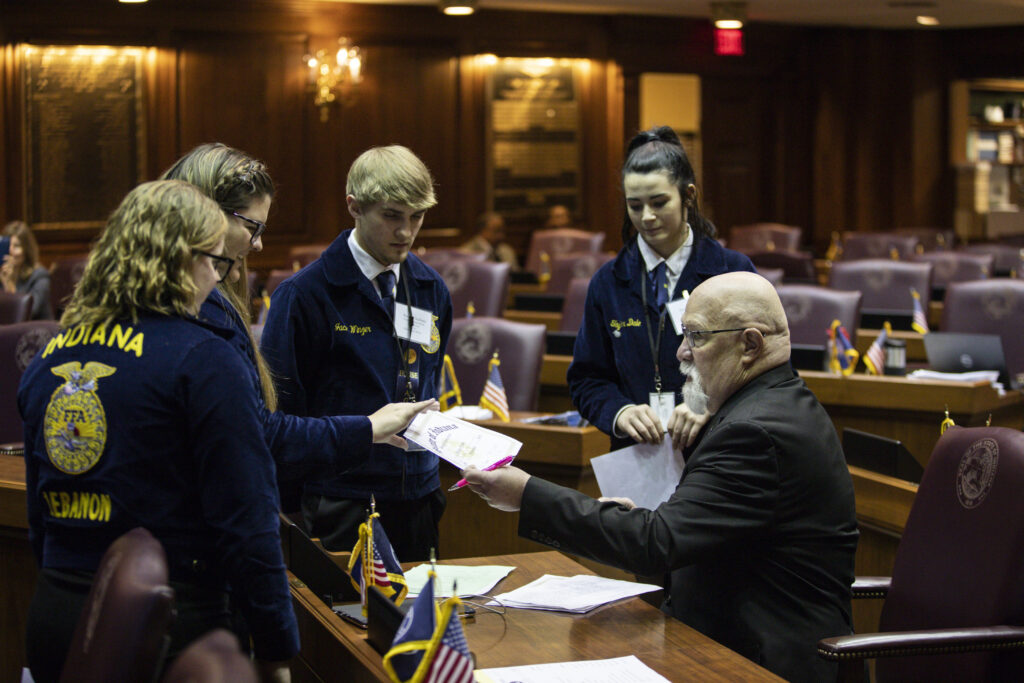
Q. In what ways has the Indiana Statehouse evolved during your years in office?
A. When I came in, in the early 90s to now, I think we’re actually a more conservative body, meaning that we spend within our means, that we don’t try to overstep what government should do.
Q. How do you think Indiana has changed during that same time?
A. We’re living within our budget. We’re fiscally responsible. We’re looking at bringing new jobs in, and in the Midwest, we’re a leader in attracting new jobs.
Q. What do you wish more Hoosiers understood about what’s happening at the Statehouse?
A. Their local elected official is just one of 150, and it takes a majority of both the Senate and the House. So it takes consensus and things don’t change rapidly. And that’s OK.
Q. You’ve obviously witnessed both a divided legislature and one dominated by a supermajority. Do you think that one party rule has helped or hurt Hoosiers?
A. Oh, I have no opinion on that.
Q. None?
A. I guess I’m happy that the Republicans were in charge. Whether it’s helped or hurt, I don’t necessarily have an opinion.
Q. What suggestions would you give to incoming lawmakers who are new to the Statehouse?
A. Well, if you’re new or [a] freshman, or maybe second year, just pick two or three bills that you work on. Don’t have a lot of different bills because then you get distracted by competing interests, and people don’t really understand where you stand and what your principles are. So be able to maybe hone in on a couple bills. Move them forward.
Q. What’s next for you?
A. Doing some traveling in retirement, spending some of the winter months where it’s warmer.
Q. That’s all of my questions, but do you have any last thoughts?
A. I’m just very happy where we were compared to the 1990s. And now, we’re a thoughtful, deliberate, balanced General Assembly, and growing jobs and balancing our budget, and it’s a very positive place to be.
Contact Kaitlin Lange on Twitter @kaitlin_lange or email her at [email protected].
Twitter @stateaffairsin
Facebook @stateaffairsin
Instagram @stateaffairsin
LinkedIn @stateaffairs
4 things to know about Braun’s property tax proposal
Sen. Mike Braun, the Republican candidate for Indiana’s governor, released a plan for overhauling property taxes Friday morning that would impact millions of Hoosiers, Indiana schools and local governments. “Nothing is more important than ensuring Hoosiers can afford to live in their homes without being overburdened by rising property taxes driven by rapid inflation in …
Bureau of Motor Vehicles looks to add new rules to Indiana’s driving test
The Bureau of Motor Vehicles wants to amend Indiana’s driving skills test, putting “existing practice” into administrative rule. Indiana already fails drivers who speed, disobey traffic signals and don’t wear a seatbelt, among other violations. Yet the BMV is looking to make the state’s driving skills test more stringent. A proposed rule amendment looks to …
In Indianapolis, Harris says she’s fighting for America’s future
Vice President Kamala Harris, the presumptive Democratic presidential nominee, told a gathering of women of color in Indianapolis on Wednesday that she is fighting for America’s future. She contrasted her vision with another — one she said is “focused on the past.” “Across our nation, we are witnessing a full-on assault on hard-fought, hard-won freedoms …
Indiana Black Legislative Caucus endorses Harris, pledges future support
The Indiana Black Legislative Caucus unanimously voted Wednesday to endorse Vice President Kamala Harris’ presidential run and will look at ways to assist her candidacy, the caucus chair, state Rep. Earl Harris Jr., D-East Chicago, told State Affairs. The caucus is made up of 14 members of the Indiana General Assembly, all of whom are …
